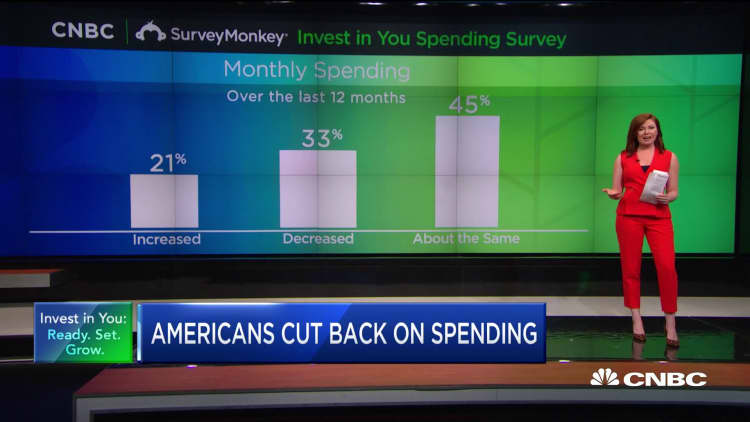If you feel like your financial goals are out of reach, take heart: You don't necessarily need to have more money to feel wealthy.
But you do need to be willing to take a hard look at your spending habits, according to Dan Ariely, chief behavioral economist at personal finance app Qapital and professor at Duke University.
"We are basically creatures of habit. A lot of what we do is because we've done it before," Ariely said.
By paring back on areas where you've been lax with spending and cutting routines that add up over time, you can make a big difference to your financial state of mind.
Start with these tips for examining which habits you want to keep and which ones you want to change.
Plan for regular expenses
You think about setting aside money for recurring expenses that take a big chunk of your income, such as your mortgage or annual tuition bill for your children.
But you might not always follow up on those intentions. That's because there's daily, weekly, biweekly, monthly and annual spending for which you have to plan. And those expenses can creep up on you, Ariely said.
Just looking at your checking account balance can be misleading.
Take two people who have the same income and mortgage payments. The first person pays the mortgage on the first of the month and the other pays the mortgage on the 20th. The second person will feel wealthier than they really are for those first 19 days, according to Ariely.
"They're not really richer," Ariely said. "The money has not gone out yet."
More from Invest in You:
Looking at Instagram or Pinterest could take a bite out of your wallet
How to recession-proof your life, according to the author of 'I Will Teach You to be Rich'
Americans fork over billions in hidden fees
One way to prevent that is to pay your bills as soon as you get paid. Another approach is to set up separate accounts for those big expenses.
That will help you better understand how much money you actually have. And you'll be less likely to overspend, Ariely said.
Reevaluate your spending
You've probably heard before that you need to budget, but that can be a very tricky endeavor, Ariely said. For instance, coffee typically goes in one category and supermarket spending goes in another category.
Instead, it helps to lump all discretionary spending together.
That way, if you link two spending areas together, such as your restaurant budget and your vacation budget, you can better track how one goal competes with another.
"Now I understand where the money is coming from," Ariely said. "If I eat out more, it's coming from my vacation fund."
Also be sure to take a look at which purchases you regret most. If you're dropping too much on dinners out, for example, try going to a cheaper restaurant, Ariely suggested.
You may also want to use prepaid debt cards, such as $500 every Monday, to help curb your spending each week, he said.







